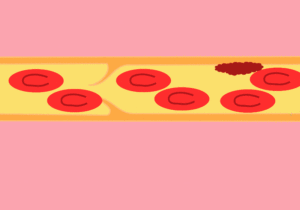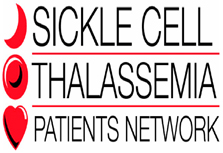SCTPN Community Health Worker Sabrina J. Lewis Shares Her Story About Advocacy and Care Coordination in the SCD Community
As a Community Health Worker with the Sickle Cell Thalassemia Patient Network, various experiences have opened my eyes to truths of what families experience while living with SCD. We are learning through many empowering educational events some of which I teach, that it is the choices that we make in life that determines the quality of the lives we live. As a general life principle it applies to all of us; wellness is a choice!
 Yet, what happens when healthy red blood cells traveling through small blood vessels carrying oxygen to the body becomes hard and sticky causing cells to get stuck clogging blood flow through the body? What control does one have over the pain this causes, and other serious problems that many people living with SCD experience such as: acute chest syndrome, stroke and leg ulcers. With these conditions, people also experience depression, anxiety, unlimited biases, discrimination, and a plethora of social issues that affect individuals with sickle cell disease, their families, and even some people who carry a sickle cell trait.
Yet, what happens when healthy red blood cells traveling through small blood vessels carrying oxygen to the body becomes hard and sticky causing cells to get stuck clogging blood flow through the body? What control does one have over the pain this causes, and other serious problems that many people living with SCD experience such as: acute chest syndrome, stroke and leg ulcers. With these conditions, people also experience depression, anxiety, unlimited biases, discrimination, and a plethora of social issues that affect individuals with sickle cell disease, their families, and even some people who carry a sickle cell trait.
Sickle Hemoglobin Traits
I inherited Sickle Cell Trait. Growing up I was told not to marry anyone with the trait or we’ll have a child that will inherit Sickle Cell Disease. I was also told that the pain I experienced in my legs had nothing to do with having the trait of sickle cell. I was told they were growing pains, and that it’ll gradually go away. As a young adult I was then told that the pain was arthritis and to take some aspirin or Tylenol and it’ll go away. I was never educated about the possibility of faint due to physical assertion or that I could possibly die while playing a sport like football f I didn’t stay hydrated. I am thankful that now we have health advocates and educators. Now we are able to teach families and individuals about the body, trait, and disease so that persons will have a deeper understanding and knowledge on how to care for themselves and family as well prevent what they can by doing what they can.
 I am thankful that now we (SCTPN) have health advocates and educators, and we are now able to teach affected families and public about the body, trait, and the disease state. People who attend SCTPN’s Public Outreach and Education Services (POES) forums gain knowledge and a deeper understanding about sickle cell, how to care for themselves, their family, as well as how to live healthier lives.
I am thankful that now we (SCTPN) have health advocates and educators, and we are now able to teach affected families and public about the body, trait, and the disease state. People who attend SCTPN’s Public Outreach and Education Services (POES) forums gain knowledge and a deeper understanding about sickle cell, how to care for themselves, their family, as well as how to live healthier lives.
Knowing what is needed is more important in my perception, than just providing the trait or disease results from the new born screening (which is super important). People need more information on treatment, medication choices on how to treat pain symptoms, in or out of the hospital. Inform people when it is best to seek help at a medical facility, and what services people should ask for or expect to receive. This is the kind of information that Community Health Workers (CHW) share with individuals and families affected by SCD. Having access to education about the various treatments, optimum dosages of medications that are available to people with sickle cell disease, also, how and when the medicines should be taken. Armed with this type of information, families will be able to make informed decisions when it comes to their health.
I’m thankful to be in the position to develop partnerships within communities with physicians, holistic health practitioners, wellness facilities, mental health counselors, and organizations that offer support with nutrition, exercise, social and financial services to help us better support our families with a wealth of resources.
No matter where the support is needed, whether in the field, emergency rooms, at schools, in the workplace, at public events, doing outreach in other states or advocating for policy in New York City, Albany and Washington DC, SCTPN Community Health Workers are here to get things done on a daily basis. We are making phone calls at midnight or in the early hours or the morning. Help comes in the way of sending a text message to request a last minute appointment or prescription refills, emailing referrals for healthcare professionals or a supportive service to clients. In the family’s homes is where I learn the most about what is needed for the SCD Community, more so then at support groups or at community health forums. Families appreciate the time and attentive service we give them.
Community Health workers and advocates become the voice for families and individuals living with sickle cell, because they are not being heard, especially when in pain. When people show up in the clinics and hospital emergency rooms, often times they are made to wait for three or more hours, because the ER staff assumes that the person’s pain is not a priority. Many adults with SCD or trait say they are ignored or mistreated, and are made to wait for hours until they can no longer bare the pain and have to aggressively confront staff about getting treatment. It isn’t like this at every hospital. However, it is wrong that mistreatment and withholding of services to chronically ill people happens at any medical facility in this day and age. The community health forums are absolutely necessary for health providers, health educators, hospital staff, as they are for families and individuals with SCD and sickle traits.
What’s most important and often challenging is the follow up process. In addition to making sure that families are connected with local and national organizational supports, we check to make sure that the families are engaged and maximizing the resources available to them.
We cannot assume anything. We must ask direct questions, give appropriate, qualified, updated information and referrals. We check in and follow up, and offer encouragement. It is our responsibility to promote wellness to improve the quality of the lives of the affected families we get connected to either care coordination or the national registry.
Check out the websites below for more information on sickle cell disease, trait. I encourage you to support the sickle cell community by participating in Be The Match® to donate blood, become a potential marrow or stem cell donor. Consider volunteering your time and skill to a SCD community organization in your area, or support an organization of your choice with monetary donations. Lastly, if you or someone that you know is living with sickle cell disease needs help, contact SCTPN to speak with a Community Health Worker (CHW) to learn about our coordination of care services, and how we can be of assistance.
Sickle Cell Thalassemia Patients Network www.sctpn.net
Sickle Cell Disease Association of America (SCDAA) http://sicklecellassociation.org/
Center for Disease Control (CDC)
Disease – https://www.cdc.gov/ncbddd/sicklecell/index.html
Trait – https://www.cdc.gov/ncbddd/sicklecell/traits.html
New York Blood Center (NYBC) https://nybloodcenter.org/
Sick Cells https://www.sc101.org/
Office of Minority Health (OMH) https://www.minorityhealth.hhs.gov/sicklecell/
Blessings & Love,
~SJL~
Sabrina J Lewis, is a State of New York certified Community Health Worker and Advocate working with the Sickle Cell Thalassemia Patients Network, and an Ambassador of Wellness & Beauty.
#live #lovelyfewell #SickleCellDisease @SCTPN @SCTPNWalk




